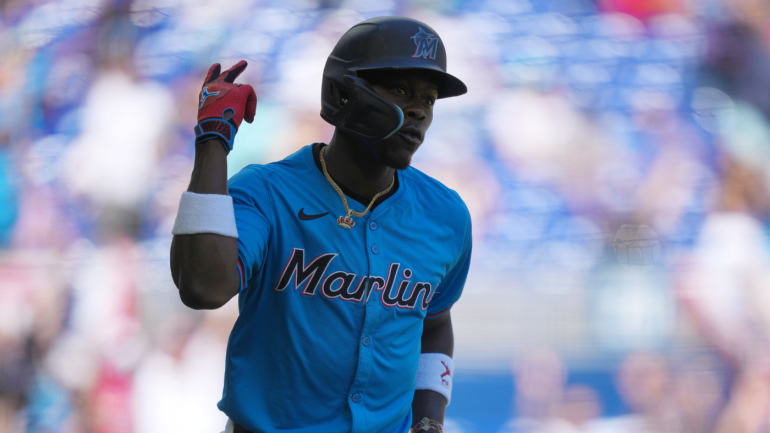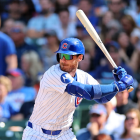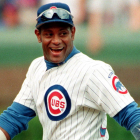
The Miami Marlins had a rough introduction to the new Major League Baseball season, losing all four home games of their calendar-opening series to the Pittsburgh Pirates. The Marlins were particularly ineffective against the Pirates' bullpen, scoring just two runs in 20 1/3 innings against Pittsburgh's relievers; for comparison, the Marlins plated 15 runs (14 of them earned) in 19 2/3 innings of work against Pittsburgh's four starting pitchers.
Marlins center fielder Jazz Chisholm offered an unusual culprit for his lineup's woes versus Pirates relievers: the shadows that were cast around loanDepot park.
"I feel like the shadows were really -- we're not used to playing in shadows. We normally play inside every day," Chisholm told reporters after Sunday's loss. "So, when we get a shadow for three of the four games at home for the first time of the season, it's kind of hard to adjust to. You know, we're used to the roof being closed and being able to see every at-bat. It's kind of tough to see when it's black out there and you're facing a guy throwing 101 [mph], you know?"
Chisholm, for his part, hit .143/.333/.429 in 18 trips to the plate.
To be clear: it makes perfect sense that shadows can impact hitting performance. Past research from Gerald Schifman at Baseball Prospectus found that "shadows may push swing-and-miss rates to greater heights." The Marlins had just one start after 7 p.m. local time, with the other games beginning around 1:40 or 4 p.m. In either case, it tracks that the shadows came into play during the mid- to late innings.
Still, you can understand if some raise their eyebrows at Chisholm's explanation -- in part because the Marlins play most of their games outside whenever they're on the road, suggesting they should be accustomed to adjusting to shadowplay, and in part because they just came off a spring training circuit where every single contest was conducted under the moon or the sun. Besides, the Pirates had to deal with those pesky late-afternoon shadows, too -- and they managed much better than the Marlins did. Pittsburgh's lineup plated 18 runs (14 of them earned) in 24 innings against Miami's relief corps.
Whatever the exact reason for the Marlins' rough weekend, this much is certain: it's not the kind of start Miami wanted following an unexpected run to the playoffs.

















